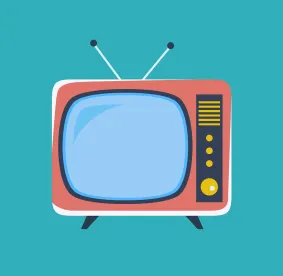In an effort to modernize communications, the Federal Communications Commission (“FCC”) decided to allow cable operators to deliver general subscriber notices required under so-called Subpart T rules (47 CFR §§ 76.1601 et seq.) to verified customer email addresses. This decision was announced through a Report and Order on November 15, 2018. This update is part of the greater trend towards using electronic communications and electronic contracting to replace paper as supported by the federal Electronic Signatures in Global and National Commerce Act (“E-Sign Act”) and related state laws. The E-Sign Act allows electronic records to satisfy legal requirements that certain information to be provided in writing if the consumer has affirmatively consented to such use. However, the E-Sign Act allows federal agencies like the FCC to exempt a specified category or type of record from the normally required consent requirements if it makes the agency’s requirements less burdensome and does not harm consumers. In this case, based on an understanding that it would be impractical for cable operators to attempt to receive permission from each individual customer prior to initiating electronic delivery of these general notices, the FCC waived the consent requirement pursuant to their discretion under the E-Sign Act.
The FCC’s November decision expands upon their June 2017 Declaratory Ruling, which allowed cable providers to send annual notices of rates and channel lineups via email, a first step to streamline paper notice requirements. The updated rules would cover additional notices, such as information about privacy, channel deletions, service change notices, notice of service changes, and information about the basic service tier, among other things. The Report and Order also authorizes cable providers to respond to consumer complaints, billing disputes and other requests via a verified email address. The Order states that the provider may respond via email if the consumer used e-mail to make the request or complaint or if the consumer specifies e-mail as the preferred delivery method in the request or complaint. The FCC believes that allowing cable operators and consumers to use the same electronic mode of communication gives the cable providers a more efficient means to reply to requests and complaints.
In order to ensure that this process benefits customers, the FCC has put in place various safeguards, such as requiring notices to be sent to verified email addresses and requiring mandatory opt-out language for those wishing to receive paper notices. According to the FCC, verified email addresses may be: (1) one that the subscriber has provided to the cable operator (and not vice versa) for purposes of receiving communication, (2) one that the subscriber regularly uses to communicate with the cable operator, or (3) one that has been confirmed by the subscriber as an appropriate vehicle for the delivery of notices. The FCC also instructed cable providers that they must clearly and prominently display an opt-out telephone number in the body of the email delivering the notices so subscribers are able to opt for paper delivery at any time. This is a minimum requirement, and the FCC encouraged cable providers to choose to offer additional choices to their customers in the same prominent manner in the body of the email.
Although this new development pleased cable operators, Commissioner Jessica Rosenworcel expressed concern over the FCC’s decision, stating:
“Sliding new charges and new fees into my already crowded email inbox makes it likely that I miss any increase in cost. So before having my video provider raise rates via email, I think I deserve the right to choose to have it do so.”
To address the Commissioner’s concern about crowded inboxes, the FCC mandated opt-out language that allows customers to revert back to mailed paper notices. The Commissioner’s concern highlights an issue that we have previously addressed regarding the ability of an email exchange to act as a binding agreement.
The FCC also issued a notice of proposed rulemaking seeking comment on whether cable operators should be able to send notifications via text message or other means in the future (e.g., smartphone apps, an electronic message center accessible on a user’s television screen). Industry members stated that communication with customers is continuously evolving and providers should not be limited to email as their only means of electronic written communication with customers.
Whether or not the FCC approves the request for additional modes of written electronic communication, the FCC’s November decision is a significant step towards modernizing communications between customers and cable operators. The ability to move in that direction can save an organization significant amounts of money in streamlining print and mail operations. As a result, electronic communications like the email notices are increasingly being adopted in lieu of paper. Unlike the FCC however, most organizations do not have the ability to waive certain requirements associated with the E-Sign Act. Therefore, organizations that choose to move to electronic communications should be sure to comply with the requirements of the E-Sign Act and any applicable state laws.


 />i
/>i

